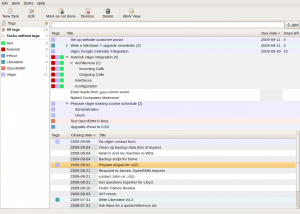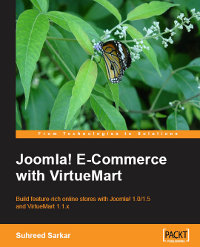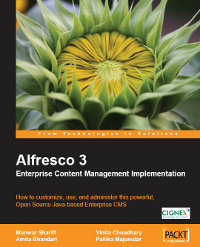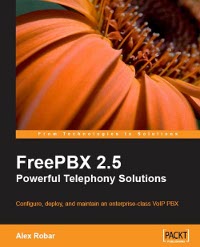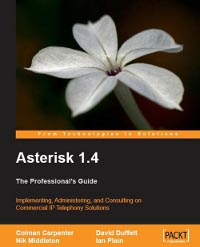PCs with Compulsorily Bundled Software Should Be Outlawed
I’ve written about the Microsoft Tax many times before and have even had a minor success with regards to getting it refunded.Now a fellow Open Source blogger and businessman, Dr Adrian Steel of Mercian Labels, is trying, so far without luck, to get the cost of an unwanted Windows License refunded from a company called Fonestop Ltd. He’s kindly providing an ongoing record of the correspondence between himself and the supplier whilst he seeks a fair refund for the software that he does not want nor require.
This example goes a long way to indicate why the bundling of software and hardware in this way is so wrong. It is incredibly hard to buy a computer in the UK that is not already infected with an inefficient, outdated, expensive, bloated and, still alarmingly, insecure operating system called Microsoft® Windows™. It is also becoming increasingly difficult to get even a partial refund due to the updated terms in the EULA that comes with version 7 of the OS (you can read most of the license agreements here):
By using the software, you accept these terms. If you do not accept them, do not use the software. Instead, contact the manufacturer or installer to determine its return policy. You must comply with that policy, which might limit your rights or require you to return the entire system on which the software is installed.
In earlier versions the statement about returning the entire system was not there. Here’s what the Vista EULA said:
By using the software, you accept these terms. If you do not accept them, do not use the software. Instead, contact the manufacturer or installer to determine their return policy for a refund or credit.
Reading Adrian’s struggle to get back the money that is rightfully his makes me quite angry. There are plenty of computer users that do not want or need Windows software when they buy a new computer. Even if they are not aware of the great Free Software operating systems such as Ubuntu or Fedora or many others, they probably already have a perfectly legal and valid CD of Windows in a drawer or cupboard anyway. Even I have a legal and valid Windows XP CD in my office; not that it ever gets used nowadays…
So what’s to be done? I really feel like starting some kind of campaign to get the lawmakers here and across the EU to make this kind of practice illegal. I as a consumer should be able to select and buy any computer I like and decide for myself if I wish to pay for a pre-installed operating system or not. That should be a choice I am free to make. Currently, apart from a few very brave and admirable vendors, I do not have this choice. And now it’s even harder to obtain a refund due to the change in the wording of Microsoft’s EULA.
These Brave and Admirable vendors deserve a mention:
- Brave because I’m sure that they will come under pressure from businesses like Microsoft to bundle their software and conform to the way that they want you to sell Computers.
- Admirable because they are standing up for something which is good and noble and may not be the most profitable course for their company to take.
As many of you know we started a website some time ago called Naked Computers to track these Brave and Admirable suppliers around the world. It’s been useful to many but it has been quite quiet recently and it could definitely do with a revamp to make it look more appealing (any WordPress Theme designers fancy knocking up a new look and feel for the site?).
In the UK there is one computer supplier that, in my humble opinion, should be applauded for their attitude: Novatech. I think that every machine they sell from their website or retail outlets are offered with or without an Operating System; it’s your choice. It’s quite interesting to look on their site and see just how expensive Windows really is: ~£70 to ~£800 or more!
Recently I noticed Novatech making a few noises on Twitter and I commented positively on their approach to selling naked computers. This was their reply to me:
@opensourcerer Thanks for recommending us, we sell all systems without operating systems as we like to give our customers a choice.
So come on you lot! Let’s try and come up with a plan, ideas and suggestions as to how to go about fixing this problem once and for all… Our company, The Open Learning Centre can host a wiki or something if needed but please use the comments here to start the ball rolling.
Are there any lawyers out there who fancy a challenge? Want to fight for Freedom and allow consumers to make their own choice rather than be forced to pay for something they frequently neither need nor want?
Finally, for those naive souls who believe that an EULA gives you some protection or guarantees, think again…
Adventures in Radio
A couple of weeks ago we had a call to the office from a BBC radio producer asking if the creators of Votegeek would like to be interviewed for the Radio 4 programme “Click On”. After thinking about this for a femptosecond or two the answer was “Yes!”. So on Friday I found myself sitting in reception of Broadcasting house in London watching lots of probably famous people that I didn’t recognise wandering in to work. After a little while I was called up to the studio (very nice anechoic chamber and separate room with mixing desks and blinking lights) and we got on with the interview. You can Listen to the show or read the transcript below.
Simon Cox:
Now the parties policies on technology probably aren’t not going to influence who gets your vote in the election. While the digital economy bill now may become law, the debate accompanying it’s rather speedy passage through parliament revealed just how little many politicians know about technology. With the economy dominating the campaign how can you find out what your local candidates think, or even know about technology. Well the answer is votegeek, the brainchild of Alan Bell, and he is with me in the studio. Alan, what are you hoping to achieve then through your site?
Alan Bell:
Well we have got a dual aim really, one half of it is to get the geeky type personality more interested in politics, and get people to understand that politics matters to them. The second aim is to get the candidates aware that we exist and that we are voters too.
SC:
What are the issues that people are wanting to focus on with candidates, presumably it is not just about broadband speed?
AB:
No, it is a wide range of issues, we are not focussing on a single issue, but we are focussing on a single topic. So there are issues such as the use of Free Software in the public sector. Public procurement policy, digital freedom, privacy, and censorship are definitely topic areas of interest.
SC:
In terms of the candidates you have been contacting what kind of reaction have you been getting from them?
AB:
A very positive reaction from some of them, and a lack of response from others! We have had responses from all the major parties, and a number of the minor parties. I was particularly pleased with a comment from the Official Monster Raving Loony Party for instance!
SC:
Are they surprised when you contact them?
AB:
The Official Monster Raving Loony Party gentleman was yes! But I would say it is not just me and my group of helpers that are contacting people, we are asking people out there to go and find their constituency on the site, look at the candidates that are available for them to vote for, and then contact their candidates. So the message to the candidates is coming from one of their constituents. There is then a comment area where people can record emails and letters they have sent to their candidates and also responses they have received back.
SC:
So it is trying to build up a profile is it on their views on particular technology issues?
AB:
Yes, it is allowing people to share information about their candidates views.
SC:
Now Rupert, what do you think about this, I mean with the Digital Economy Bill the politicians didn’t really cover themselves in glory did they?
Rupert Goodwins:
Well following the Digital Economy Bill closely was quite an eye opener for me, because not only did it transpire that the politicians didn’t know what they were talking about, but they didn’t quite realise why it was being rushed through so quickly, and this is an important part of anyone who wants to be an active democrat because you can’t be good at democracy unless you are informed. Things like votegeek mean that we can get much more involved and force politicians to be more serious about their jobs and that is an excellent thing.
SC:
What about the way that technology is being used during the campaign, we are always hearing that this is the election where we are suddenly going to see technology really beginning to take off, have you been struck at all by way it is being used?
RG:
Well yes there was the big debate, well the first of the debates between the three candidates for Prime Minister and if you were online whilst watching that there were lots and lots and lots of people talking away on twitter, blogs and instant messaging. There was an awful lot of debate going on at the same time which never happened before. The most important thing about politics is to be involved and to be informed and technology is allowing that to happen in a new way for the first time.
SC:
Alan Bell, thanks a lot for that, and Rupert thanks to you too.
UK Gov Updates Open Source Policy
Remember the Cabinet Office Open Source, Open Standards Re-Use: Action Plan that came out last February?
Well, they’ve updated it. And the bits that they have changed are most welcome:
4. This Strategy does not represent a wholesale change to the Open Source Open Standards Reuse Strategy published in February 2009. It has been updated to take account of comments posted on www.writetoreply.org. The key changes to policy are:
- We will require our suppliers to provide evidence of consideration of open source solutions during procurement exercises – if this evidence is not provided, bidders are likely to be disqualified from the procurement.
- Where a ‘perpetual licence’ has been purchased from a proprietary supplier (which gives the appearance of zero cost to that project), we will require procurement teams to apply a ‘shadow’ licence price to ensure a fair price
comparison of total cost of ownership. We have also defined the shadow licence cost as either:1. the list price of that licence from the supplier with no discounts applied, or
2. the public sector price that has been agreed through a ‘Crown’ agreement.
- We have clarified that we expect all software licences to be purchased on the basis of reuse across the public sector, regardless of the service environment it is operating within. This means that when we launch the Government Cloud, there will be no additional cost to the public sector of transferring licences into the Cloud.
Which is nice 🙂
But unfortunately, as has been said widely before and again with this update, this is an action plan without any teeth. There is no enforcement, there is no monitoring and there are no penalties for not implementing the plan.
It’s all been said already so this is a short post. Until the Cabinet Office can get this implemented at a departmental level across the government and enforced, it remains essentially a "nice-to-have" objective but not much more.
The Cabinet Office have an Open Source aggregation service that collects various commentary from around the world based on various tags. This one needs the #ukgovOSS tag if you want to write your own piece or even tweet/dent about it.
PS: We have also made a remark or two about this update on our recently started (admittedly rather quietly) and more business-centric Open Source blog that’s on our main web site. We’ve called the blog The Way Out. Please feel free to drop by or add to your feed readers.
More book reviews and what I’ve been up to…
I just noticed that I hadn’t posted anything here for what feels like ages – since August the 15th.
So I thought, hmmm, better write something.
But what? A quick update on what’s been going on perhaps? That’ll do…
I’ve been working quite a bit with the brilliant free and open source vtiger CRM recently. Looking at some of the less widely used features and updating our training materials for the recent 5.10 release. I’ve also just submitted a small patch for the Customer Portal feature, to do with its web layout and have been thinking about how best to improve this, and the Webforms modules, to make them easier to customise.
I am also really enjoying using a great little python application called “Getting Things Gnome“. It one of those simple applications which does one job, does it very well and is easy to use. It’s basically an app for jotting down your todo list and making sure you get things done… Here’s what it looks like on my Ubuntu Jaunty desktop:
I also had a mail from those nice people at Packt Publishing suggesting two new books to look at and review for them, In fact a co-author of one of them actually requested that Packt contact me to do a review 🙂 Flattery indeed.
So, we now have four books in the pipeline in no particular order:
Implementing, Administering, and Consulting on Commercial IP Telephony Solutions
- Written by four Asterisk Professionals, this book brings their years of experience together in an easy-to-understand guide to working with Asterisk in small, medium and larger Commercial environments
- Packed with hints, tips, and best practice – learn to avoid the pitfalls that can hinder an Asterisk implementation
- Focused chapters provide thorough, comprehensive, and self-contained instructions on how to deploy Asterisk across different commercial scenarios
This will probably be the first one I read when they arrive next week. It’s hot-off the press, just been released and can be ordered from Packt’s web site here.
My little Asus 1008HA netbook is running very happily with the Alpha build of Ubuntu Karmic Koala. I was at the swimming pool yesterday (not in it but taking my son to his lesson) and using 3G mobile internet to get on line. Battery life is good although not as long as is quoted by Asus. I reckon I get about 3 1/2 to 4hrs of good use. But that is mainly when powering a 3G dongle too – and they get hot. Karmic is shaping up to be a great release I think although to be frank I am really not sure about the new Gwibber interface, and the Empathy IM client hasn’t really floated my boat yet. But hey ho, never mind, at least we have a choice folks.
We are planning some new marketing activities over the coming months, what with the forthcoming release of the best desktop OS of all time and Microsoft releasing their rewrite of Vista, October should be a fun month. Hopefully we’ll have lots of interesting stuff to write about.
In fact I want to share with you a backup script I’ve written in Bash for my home office network and what may well end up being expanded and developed to support some of our commercial systems too. Well I think it’s pretty cool anyway. It wakes up machines in the middle of the night, uses – currently – rsync to back them up, then turns them off again. Configuration is easy and it seems to be working fine. When I get a mo I’ll publish the script source and let you all comment on my terrible bash skills. But I like it…
So there!
Update on Miserware Beta – Power Saving on Linux
It’s well over a week now since I started using the Miserware MicroMiser software. I have it installed on all the Ubuntu PCs we have at home and on two laptops too. I have noticed no adverse effects from running the software. In fact you really do forget it is there. (The Micromiser software is packaged and available for easy install on Debian and it’s many derivatives, Fedora, RHEL, and SLES too so you are not limited to just Ubuntu’s Linux)
When I’m travelling around London (as I did quite a bit this week) I tend to take my 10″ webbook netbook device as it is lightweight and easy to cart around. For comms, I have a 3G dongle that gives me Internet access from virtually anywhere. [Ask Daviey just how handy that was the other day 😉 ]
Now, this is by no means a scientific result and I haven’t had time to actually do a proper comparison with and without the Miserware code, but I reckon I’m getting around 30mins more life from the battery since running the Micromiser software. Before installing the code I was getting between an hour to an hour and a half or so of battery life, so I guess that that would equate to an average improvement of around a third.
Those 3G devices get really hot after being on for an hour! They make a really nice hand warmer in the winter though 😉 My lappy is running Ubuntu 9.04 desktop.
The Beta trial is still active and running and Miserware are very happy to have more subscribers sign-up. So If you would like an invite, leave a comment here and I’ll get on it asap.
One point that came up from a couple of people who were interested in taking part in the trial was to do with some restrictions on what you could say publicly about your observations. I am happy to say that Miserware have updated the license to be a little clearer and allow for more information disclosure. Here’s the text of the mail (with obfuscated email address) I received regarding the changes:
Dear MicroMiser beta participant,
Thank you for your involvement in the MicroMiser beta! The response so far has been tremendous and well beyond our expectations. The information we are getting when you run the mw-feedback script is really helping us improve our products and documentation.
The license you agreed to when registering for the beta said you needed permission from MiserWare to publish data reported by our software. We would like to lift this requirement to some extent by allowing you to share performance and power numbers reported by MicroMiser. More precisely our lawyers told us to say it like this:
“You are hereby authorized to disclose information regarding the performance of the MicroMiser software, provided that such information is provided to you in a MicroMiser software report.”
This includes any information (including energy savings information) provided by MicroMiser in any of its log files and/or information reported in tools such as the mw-feedback script which reports system specific information to MiserWare thereby aiding future development and earning you points in the incentive program.
Several folks have asked about benchmarking against other power management software. With regard to benchmarking, we want to clarify the intent of the license. Our intent was not to preclude benchmarking altogether, but to ensure the measurement methodology is fair to all parties. More precisely, our lawyers told us to paste both permissions together:
“You are hereby authorized to disclose information regarding the performance of the MicroMiser software, (i) provided that such information is provided to you in a MicroMiser software report, or (ii) provided that such information is obtained using techniques approved in writing by MiserWare.”
There is no need for you to sign another license agreement as these clarifications simply give you additional permissions under the original license.
These clarifications are the result of your feedback. Please continue to send your comments to f–db–k at miserware dot com . We promise to keep listening.
Regards,
MiserWare
So, if you want to help these guys with their Beta, and get on the incentive program too (I’ve just won and received a really cool green iPod Nano) simply leave me a short comment below.
Asterisk: AGI Programming
Recently I received a flattering email from Packt Publishing telling me about a new book entitled: “Asterisk Gateway Interface 1.4 and 1.6 Programming” – by Nir Simionovich. The author of the email refered to this blog and asked if I would like to review their book for my blog. Very flattering indeed.
[Update: Book review is done now. You can read it here]
I was, of course, already familiar with Packt. They do produce lots of books on Open Source technologies. What I wasn’t aware of, until I looked, was this (from their “about us” page):
Packt Open Source Project Royalty Scheme
Packt believes in Open Source. When we sell a book written on an Open Source project, we pay a royalty directly to that project. As a result of purchasing one of our Open Source books, Packt will have given some of the money received to the Open Source project.
In the long term, we see ourselves and yourselves, as customers and readers of our books, as part of the Open Source ecosystem, providing sustainable revenue for the projects we publish on. Our aim at Packt is to establish publishing royalties as an essential part of the service and support business model that sustains Open Source.
Now that seems like a fine scheme to me and is one that would certainly weight my purchasing decision toward a Packt book over another similar publication. I am aware that they will obviously get some free publicity from our review but having read the above I am quite happy about that.
Anyway, back to AGI.
Asterisk Gateway Interface (AGI)
The Asterisk Gateway Interface is an interface for adding functionality to Asterisk with many different programming languages. Perl, PHP, C, Pascal, Bourne Shell – it’s your choice, really.
- AGI may control the dial plan, called in extensions.conf.
- Async AGI Introduced in Asterisk 1.6, allows asynchronous AGI scripting.
- EAGI gives the application the possibility to access and control the sound channel in addition to interaction with the dial plan.
- FastAGI can be used to do the processing on a remote machine via a network connection.
- DeadAGI gives access to a dead channel, after hangup. Deprecated since Asterisk 1.6
Being a fan and user of Asterisk in our business, I think what we will do is actually use the book and create or modify an application that will be of use to us. This should allow us to give a decent overview of the content and how easy/hard it was to transfer the knowledge into a real world result.
We use vtiger as our CRM, OpenEMM for email marketing and Asterisk for our telephony – all running on Ubuntu Servers. Tying these together would be a fine goal.
But I am open to other suggestions too. Anyone got any good ideas for a fairly simple AGI application?

